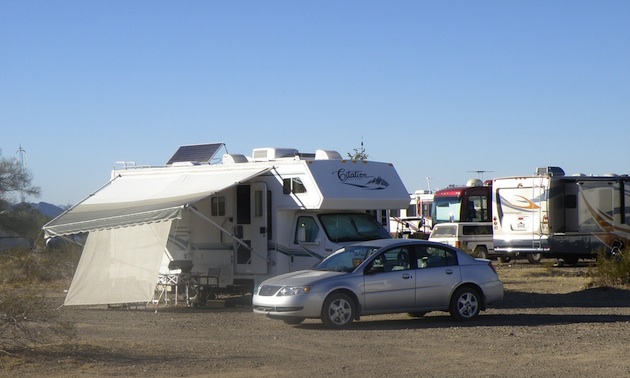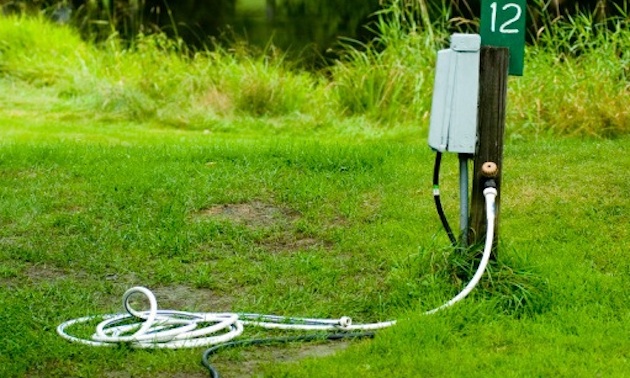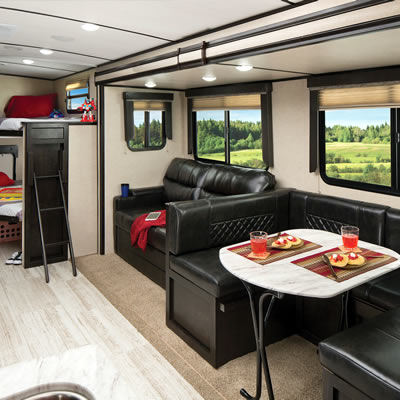Talking safety and security for RVers
Experienced RVers share their safety tips

New RVers may wonder about how secure it is staying at different RV resorts, campgrounds and boondocking spots. What precautions are good to take into account while on the road?
In my mind, safety and security are the foundation to building any venture. If we don’t feel safe and secure, our whole experience is going to be mired in anxiety and apprehension.
To quote a committed RVer, author and dear friend: “The first step to staying safe is to start with a reliable rig and keep it that way.” Bruzenak, Jamie Hall and Zyetz, Alice, Retire to an RV:The Road to Affordable Retirement,” is published at $19.95 and is available at rvlifestyleexperts.com RVbookstore.com Amazon.com and other retailers.
There are plenty of books available to help you understand and maintain your rig. In addition, the Okanagan College and the Recreation Vehicle Dealers Association of BC offer an RV lifestyle seminar every June.
Safety starts with your RV and security continues with care and awareness. I took the opportunity to talk to fellow RVers and they reported (and recommended) the following:
RV resorts and parks
- Most RV resorts and parks do their utmost to provide security for their guests and their rigs, but we don’t depend on others—we do what makes us feel comfortable. It’s like what you would do in your own home.
- We do lock our doors when we go out (even if we are just around the park) and at night. It is true that most RVs are not difficult to break in to, but some resistance is a deterrent.
- We leave our barbecue out on the patio but do chain the propane tank, again to discourage the tank from developing feet and walking away. What seems true is the longer you stay in one particular park, the less likely you are to be overly concerned about the security.
- I don't lose much sleep over safety in a campground, unless it is in grizzly country and I'm in a tent.
- People are very close together and they can hear if something happens.
- I had never considered the idea that I should feel unsafe.
Overnight stays and boondocking
We are normally more cautious when we boondock.
- We padlock a chain from the generator to the axle of the motorhome to keep it from disappearing.
- We do bring in the awning and put the chairs away in case of wind or inclement weather.
- We make a point of introducing ourselves to RVers around us. I think of it much like the reason WalMart has greeters. You are less likely to encounter negative behaviour from folks if you managed to make eye contact with them. Besides which, we have made some wonderful friends that way.
- Be aware that many Americans travel with firearms and many are not opposed to using them.
This is what other RVers have said:
- Be aware of your surroundings. There is safety in numbers. Try to surround yourself with other RVers.
- If you don't feel safe, move on.
- Never open the door to a stranger: communicate through the closed door.
- Get a dog that will bark. If you don’t have or want a dog, put a big bowl and a partially chewed bone outside.
- Have your cell phone handy.
- Hit the panic button on your key fob and/or get a car alarm.
- Practice situational awareness. If something doesn't feel quite right, it probably isn’t. Move on. Don't put yourself in harm’s way.
- Arm yourself with bear spray, pepper spray or wasp spray if you are really concerned.
- The biggest risk is from thieves breaking in, but that occurs also in large parks where people leave their vehicles unlocked or in high-risk cities.
- Try to avoid parking with a light pole, cement post, high curb, tree or other obstacle in front of or behind your unit.
- Try to not look like good targets. No fancy jewelry or designer handbags or clothes, for example.
Generally speaking
The more you travel, the more comfortable and less fearful you will become. The level of safety you feel comfortable with is of your personal choosing.
Happy and safe travelling.








